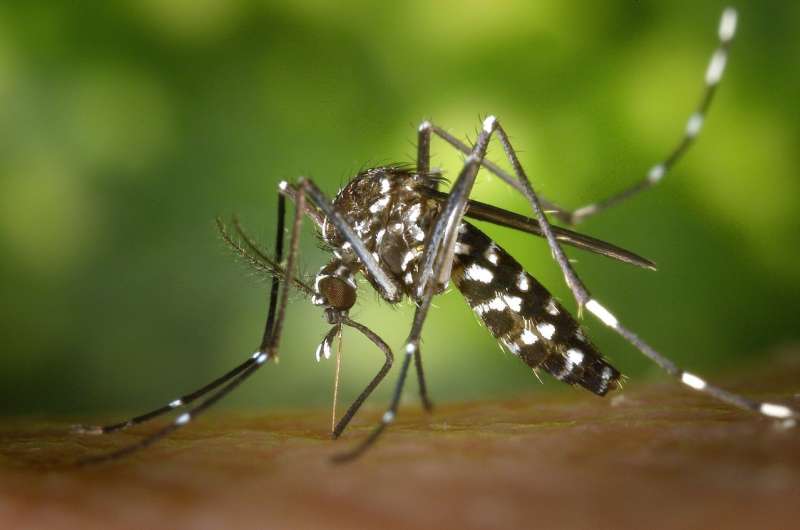
Doctors in the UK and France give details of a British woman who was infected with dengue while visiting family near Nice in September 2022, in a case report being presented at this year’s European Congress of Clinical Microbiology & Infectious Diseases (ECCMID) in Copenhagen, Denmark (15-18 April).
The 44-year-old woman presented to an Emergency Department in the UK following a 3-day history of fevers, headache behind the eyes, muscle pain, and a blanching, widespread erythematous rash (which can occur with a range of infections). She had no underlying medical conditions.
The woman had returned from the South of France the day before symptoms started and had not traveled to any other countries. She had been staying with family who had all been unwell with the same symptoms.
An urgent sample was sent to the UK’s Rare Imported Pathogens Laboratory (RIPL) and confirmed as acute dengue virus infection. The patient did not need any medical treatment and was monitored as an outpatient.
“This individual was part of an outbreak of over 30 locally transmitted cases in the south of France in 2022, which highlights the rapidly changing epidemiology of dengue,” says author Dr. Owain Donnelly from The Hospital for Tropical Diseases, London, UK. “Surveillance and reporting mechanisms are important in ensuring we have an accurate understanding of dengue spread.”
He adds, “With climate change, particularly hotter temperatures and more rainfall, and increasing global trade and tourism, we may see more parts of Europe with the right combination of factors for dengue outbreaks.”
Dengue virus is a mosquito-borne arboviral infection, typically spread by the Aedes mosquito. Cases in the UK are most commonly travelers who have visited Asia, South America, and Africa. While an estimated 75% of cases are asymptomatic and can go undetected, a small proportion (1-5%) of patients develop potentially fatal severe dengue or dengue hemorrhagic fever.
Historically, the virus that causes dengue fever is transmitted by species of mosquitoes (Aedes aegypti and Aedes albopictus) only found in the tropics. However, with climate change, the Asian tiger mosquito (A. albopictus) has been identified throughout southern Europe.
Between June and September 2022, the Agence Regionale de Santé (ARS) in France reported three separate outbreaks of indigenous dengue virus transmission—in other words, infections contracted on national territory without patients having traveled abroad. Transmission occurs via a mosquito bite; it is not spread from person to person.
The UK authorities have detected the Asian tiger mosquito at UK ports multiple times over the past few years, but no local populations have established in the UK to date.
“To ensure accurate diagnosis, physicians should consider testing for dengue if patients live in or have visited countries where Aedes albopictus is found, and present with the typical constellation of symptoms, even if dengue is not widespread,” says Dr. Donnelly. “Making the correct diagnosis not only has an impact on patients, but also allows us to increase our understanding of dengue distribution and take appropriate steps to control outbreaks.”
European Society of Clinical Microbiology and Infectious Diseases

